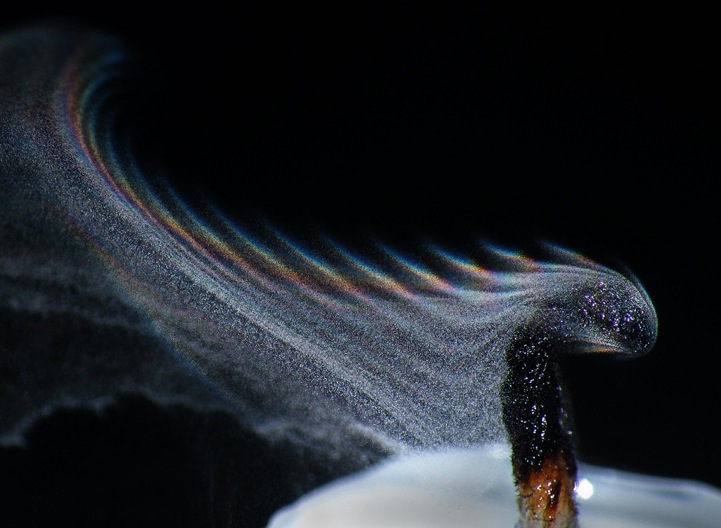FWP:
SETS == IDIOMS; JO
CANDLE: {39,1}
COMMERCE: {3,3}
This is one of only a very few of Ghalib's verses in which the beloved is unambiguously a youth; for more on this see {9,2}. Like {9,2}, this verse too makes use of the beloved's newly downy cheek for its possibilities of wordplay.
The beloved's cheek is brilliant and rosy, and dazzles his lovers as if it were a candle-flame-- until the first down appears on his cheek, after which his lovers begin to lose interest and fall away. By convention, in the ghazal world it is only the pre-pubertal youth, with his still somewhat androgynous beauty, who is considered attractive. Before puberty, his 'bazaar' is 'hot', and there's a lively 'market' for his charms.
Thus the dark growth of down on his cheek is like the ashes of the fire that once blazed there: it commemorates not a passion, but a commercial appeal, that has now grown cold. The idiom bāzār sard honā , for the market to become 'cold', conveys the falling-off in demand for a product-- the market for the youth is no longer 'hot'. For a market to be 'hot' [bāzār garm honā] is for it to be 'brisk or active', for something 'to have a good sale; to be in great demand... to be all the rage' (Platts p.122).
Faruqi's explanation is helpful here: the speaker himself is not commercially minded, he is still a faithful 'friend'.

Ghalib:
[1861, to Ala'i:] Listen, Sahib! It's a rule among lovers of youths [ḥusn-parast] that they see the youth [amrad] as three or four years younger. They know that he is a young man [javān], but they consider him a boy [bachchah].
==Urdu text: Khaliq Anjum vol. 1, p. 368
==another trans.: Russell and Islam, p. 254